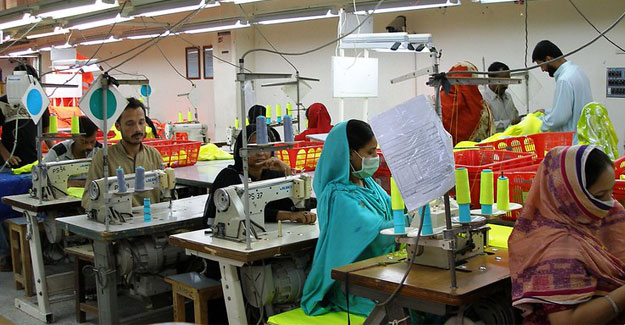
Pakistan’s Garment Exports Increase To US$ 7.98 Billion
Pakistan’s Ministry of Commerce informed the National Assembly that as a result of Generalized Scheme of Preferences (GSP+), Pakistan’s garment exports to European Union (EU) had increased from US$ 6.87 billion in 2013 to US$ 7.98 billion in 2018. In a written in the National Assembly, the ministry told that under GSP+ Pakistan had duty-free access in the EU market for garments and apparel and Pakistan’s exports in garments and hosiery had increased by 92 percent. The ministry said in all bilateral arrangements under free and preferential trade agreements with other trading partners textile sector and garments figured prominently. In order to boost garments exports to China, the government had taken various steps. There was early implementation of the Phase-II of China-Pakistan Free Trade Agreement (CPFTA) which was implemented from January 1, 2020. The phase II had offered favorable concessions to Pakistan which inter alia include immediate elimination of tariff on 313 tariff lines of Pakistan’s prime exports which included 91 tariff lines of garments. In an effort to persuade textile products sourcing from Pakistan to China, the ministry led a delegation of 35 leading enterprises of textile and leather to participate in Li & Fung Vendor summit held in June 15-19 in Shanghai. The event helped in establishing B2B linkages for Pakistani enterprises with their Chinese counterparts. Following that China National Textile and Apparel Council (CNTAC) a leading textile and garment association of China had shown keen interest in the joint ventures. To showcase Pakistani products in Chinese market, Pakistan participated in the 1st China international Import Exhibition (CIIE) held in November 2018 in Shanghai wherein large number of Pakistani enterprises from the garment industry participated. In addition to receiving concessions on 232 tariff lines under Preferential Trade Agreement (PTA) with Indonesia, Pakistan had also gained unilateral market access on 20 top priority tariff lines at zero duty of these 20 tariff lines. These 20 tariff lines constituted US$ 4 billion of Pakistan’s global exports and cover over US$ 600 million of Indonesia’s global imports. Concessions on these tariff lines had come into effect from March 2019. In order to boost garments exports to South Korea, the ministry led business delegation of leading textile and leather enterprises to South Korea and arranged Trade and Investment Conference in Seoul in August 2019. The conference helped the Pakistani companies to build linkages with South Korea counterparts. TEXPO, 2019 which was the biggest government level exhibition specific for the textile sector recently took place in Lahore in which delegates from more than 50 countries participated.
Textile Excellence
If you wish to Subscribe to Textile Excellence Print Edition, kindly fill in the below form and we shall get back to you with details.












